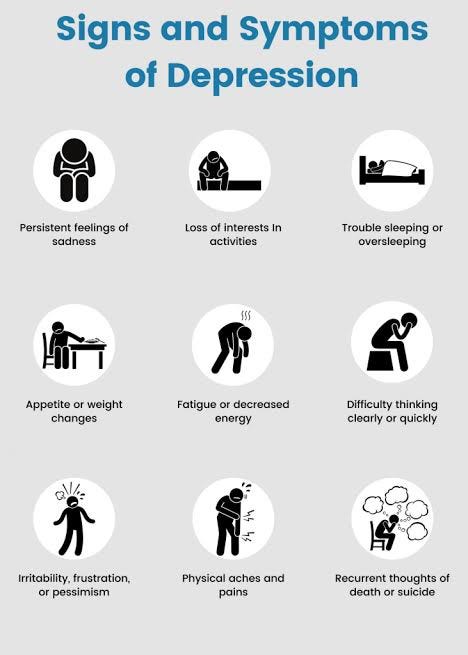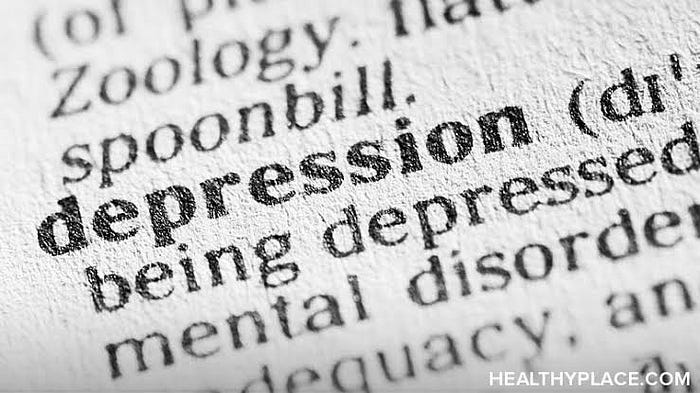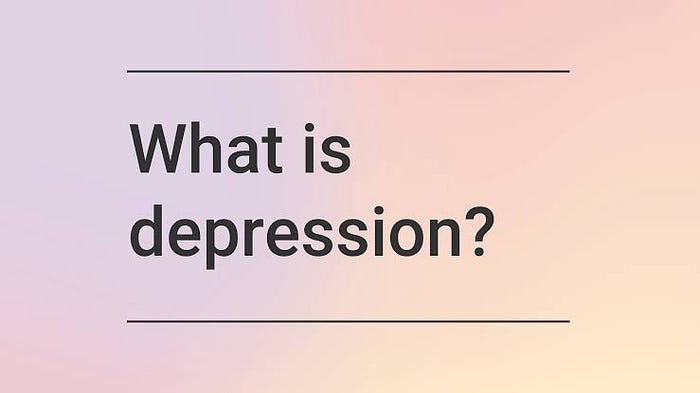- “Empowering Emergency Medicine Physicians”
- “Queue Management Software and Hospitalists in Modern Healthcare”
- “Enhancing-Pediatric-Infectious-Disease-Care”
- “Revolutionizing-Geriatric-Care”
- “Optimizing-Patient-Care-in-Pediatric-Rheumatology”
- “Pediatric-Pulmonology-Care”
- “Revolutionizing-Pediatric-Gastroenterology”
- “Enhancing-Pediatric-Neurology-Care”
- “Optimizing-Pediatric-Cardiology”
- “Enhancing-Pediatric-Endocrinology-Care”
- “Empowering-Neonatologists-with-EMR-Software”
- “Pediatrics-in-Focus”
- “Empowering-Neurologists-with-Electronic-Prescriptions”
- “Streamlining-Dermatology-Practice”
- “Streamlining-Psychiatry-Practice”
- “A-Game-Changer-for-Infectious-Disease-Specialists”
- “Allergist/Immunologist-Practices-with-QME-EMR-and-Hospital-Management-Systems”
- “Empowering-Hematologists-and-Revolutionizing-Healthcare-Management”
- “Optimizing-Healthcare-with-HMIS”
- “Transforming-Healthcare-with-Endocrinologist”
- “Healthcare-Management-with-QMe-EMR-for-Nephrologists”
- “Revolutionizing-Healthcare-Management-with-Cardiologist”
- “Streamlining-Operations-with-Queue-Management-Software”
- “Optimizing-Healthcare-Delivery”
- “Transforming-Healthcare-Management”
- HMIS And Decision Support Systems
- Dengue Unveiled: An Overview of Causes, Symptoms, and Prevention.
- Dengue Fever: Unraveling the Mosquito-Borne Menace.
- HMIS-and-Continuity-of-Care
- Project-Management-for-Successful-HMIS
- Catalysts of Wellness: The Transformative Power of Diagnosis and Screening in Healthcare
- Patient-Data-Management
- Guardians of Healthcare: The Vital Role of Fraud Detection in Ensuring Ethical Care
- Unlocking Insights
- Healthcare in the Digital Age: The History Of Development Of HMIS
- Transforming Healthcare
- Safeguarding-HMIS-Data
- HMIS-Integration-Challenges
- ANXIETY UNVEILED: CONQUERING FEARS AND CULTIVATING CALM.
- HMIS and Resource Allocation
- HMIS Data Accuracy and Integrity
- SOOTHING THE SILENT PAIN: UNDERSTANDING VULVODYNIA.
- Impact of HMIS on OPD Operations
- In Patient Management Through Health Management
- WITHIN THE SHADOWS: UNDERSTANDING BRAIN TUMOURS FROM WITHIN
- HMIS-and-Health-Insurance-Integration
- HMIS-Data-Analytics-for-Preventive-Care
- SILENT INTRUDERS: UNRAVELLING THE MYSTERIES OF PELVIC INFLAMMATORY DISEASE
- BREAKING FREE: OVERCOMING THE HURDLE OF URINARY INCONTINENCE
- “HMIS and Doctor-Patient Communication”
- HEALING INSIGHTS: THE POWER OF THE HOSPITAL MANAGEMENT INFORMATION SYSTEM.
- SOLVING THE OVARIAN PUZZLE:UNDERSTANDING OVARIAN CYST INSIDE OUT
- Usability And User Experience In HMIS
- WARRIOR’S BATTLE: TRIUMPHING OVER UTERINE CANCER
- POLYCYSTIC OVARY PUZZLE: UNRAVELLING THE ENIGMA OF PCOS
- Unlocking-the-Potential-of-HMIS-Data-for Medical-Research-and-Healthcare-Policy-Enhancement
- Feminine Health Unplugged: Empowering Women in Vaginal Infection Awareness
- Revitalizing Feminine Comfort: A Journey Through Vaginal Wellness.
- HMIS Vendor Selection Guide
- UNDERSTANDING FIBROIDS: NAVIGATING THE INTRICACIES OF UTERINE HEALTH.
- Best Practices for Data Migration in Healthcare Management Information Systems (HMIS)
- CONCEIVING HOPE: NAVIGATING THE JOURNEY OF INFERTILITY
- MENSTRUAL IRREGULARITIES: CAUSES AND TREATMENT
- RISING ABOVE: EMPOWERING WOMEN WITH PELVIC ORGAN PROLAPSE
- Leveraging HMIS for Enhanced Public Health Management and Disease Surveillance
- Challenges and Benefits of Implementing HMIS in Rural and Remote Healthcare Settings
- Securing Healthcare Continuity
- Pancreatic Cancer
- Lymphoma
- Leukemia
- Bladder Cancer
- Skin Cancer (Melanoma)
- COLORECTAL CANCER
- All about Prostate Cancer
- Fighting out the Disease of Lung Cancer
- Advances in Breast Cancer Treatment: A Comprehensive Guide
- Autism Spectrum Disorder (ASD)
- EHR SYMPHONY: HARMONIZING HEALTHCARE THROUGH ELECTRONIC RECORDS .
- Understanding Testicular Cancer: Detection, Treatment And Awareness.
- Childhood Obesity
- Kawasaki Disease
- Eczema (Atopic Dermatitis)
- Understanding Bone Cancer: A Brief Overview.
- Virtual Healing: Navigating Healthcare Through Telemedicine and Telehealth.
- Attention-Deficit/Hyperactivity Disorder (ADHD)
- PELVIC PAIN:CAUSES SYMPTOMS AND PREVENTIONS
- Type 1 Diabetes: Causes, Symptoms, and Treatment
- Gastroesophageal Reflux Disease (GERD)
- Battling Pneumonia: Unveiling the Stealthy Invader of the Lungs
- Unravelling the Complexity of Allergic Reactions: Understanding, Managing, and Thriving
- Rashes (Eczema, Dermatitis)
- UNDERSTANDING CERVICAL DYSPLASIA: CAUSES, SYMPTOMS AND MANAGEMENT
- Chicken Pox
- Endometriosis Unmasked: A Closer Look at the Silent Struggle
- Croup
- Hand, Foot and Mouth Disease (HFMD)
- THE DAWNING OF A NEW ERA: EMBRACING THE JOURNEY OF MENOPAUSE
- Urinary Tract Infections (UTIs)
- Strep Throat (Streptococcal Pharyngitis)
- Understanding Otitis Media(Ear Infection)
- 28th July In medical history!!
- Influenza (Flu) - Symptoms, Prevention and Management
- 27th July In medical history!!
- Respiratory Syncytial Virus (RSV) Infection
- SIGNIFICANCE AND ADVANTAGES OF HMIS: A DETAILED ANALYSIS
- Beyond Boundaries: Transforming Healthcare with Virtual Reality
- TRACK YOUR LIFE : A DETAILED UNDERSTANDING ON HEALTH MONITORING SYSTEM
- EXPLORING BENEATH THE SURFACE: UNDERSTANDING BARTHOLIN CYSTS AND ABSCESSES
- GUARDING GUT HEALTH: YOUR GUIDE TO POTENTIAL CROHN’S DISEASE PREVENTION.
- PATHWAYS OF HOPE: NAVIGATING THE CHALLENGES OF ESOPHAGEAL CANCER
- Gastric Battles: Confronting Stomach Cancer Head-On.
- HMIS IN SMALL CLINICS: A STEP TO A BETTER FUTURE
- Harmonizing Your Cycle: A Journey to Menstrual Health and Balance.
- Respiratory Syncytial Virus (RSV) Infection
- GUARDING OUR INTIMATE WORLD: A CLOSER LOOK AT STI
- Real-World HMIS Implementation Case Studies: Using Data to Transform Healthcare
- Gastroenteritis (Stomach Flu)
- Asthama - The Anatomy Of Breathing
- Influenza - A Silent Intruder
- Breast Cancer
BEYOND THE BLUE: EMBRACING LIGHT ON THE PATH OF DEPRESSION.
BEYOND THE BLUE: EMBRACING LIGHT ON THE PATH OF DEPRESSION
Introduction

Depression, often referred to as major depressive disorder (MDD), is a common and serious mental health condition characterized by persistent feelings of sadness, hopelessness, and a lack of interest or pleasure in activities. It goes beyond the normal fluctuations in mood that everyone experiences. Depression can affect how you think, feel, and handle daily activities. It’s important to note that depression is more than just feeling down temporarily; it’s a pervasive condition that can impact various aspects of life.
Key features of depression include:
- Persistent Sadness:
Feeling sad, empty, or down most of the day, nearly every day.
- Loss of Interest:
Loss of interest or pleasure in activities that were once enjoyable.
- Changes in Appetite and Weight:
Significant changes in appetite and weight, either an increase or decrease.
- Sleep Disturbances:
Insomnia or sleeping too much, often accompanied by changes in sleep patterns.
- Fatigue:
Feeling tired and lacking energy, even after restful sleep.
- Feelings of Worthlessness or Guilt:
Persistent feelings of worthlessness, guilt, or excessive self-criticism.
- Difficulty Concentrating:
Trouble concentrating, making decisions, or remembering details.
- Physical Symptoms:
Physical symptoms such as headaches, digestive problems, and aches or pains that don’t respond to treatment.
- Slow Movement or Restlessness:
Psychomotor agitation (restlessness) or psychomotor retardation (slowed movement and thinking).
- Thoughts of Death or Suicidal Ideation:
Frequent thoughts of death, dying, or thoughts of suicide. In severe cases, individuals may develop a desire to end their own lives.
It’s important to note that depression can vary in severity, and individuals may experience a combination of these symptoms to differing degrees. The causes of depression are multifaceted and can include genetics, brain chemistry, life experiences, trauma, and other factors. Effective treatments for depression include psychotherapy (such as cognitive-behavioral therapy) and medication (such as antidepressants). If you or someone you know is experiencing symptoms of depression, seeking help from a mental health professional is important for proper diagnosis and treatment. Depression is treatable, and many people can experience significant relief from their symptoms with the right support.
RISK FACTORS AND CAUSES

The causes of depression are complex and involve a combination of genetic, biological, environmental, and psychological factors. While the exact cause of depression may vary from person to person, here are some key contributors that are often implicated:
- Genetic Factors:
Family history of depression or other mood disorders can increase the risk. Having a first-degree relative (parent, sibling) with depression raises the likelihood of developing the condition.
- Brain Chemistry:
Imbalances in neurotransmitters, such as serotonin, dopamine, and norepinephrine, play a role in regulating mood. Changes in these neurotransmitters are associated with the development of depression.
- Hormonal Changes:
Hormonal changes during certain life stages, such as puberty, pregnancy, postpartum, and menopause, can contribute to the onset of depression.
- Biological Factors:
Structural changes in the brain, particularly in regions related to mood regulation and emotional processing, have been observed in individuals with depression.
- Life Experiences:
Traumatic events, loss of a loved one, abuse, and other significant life stressors can trigger or contribute to the development of depression.
- Chronic Illness:
Chronic health conditions, such as diabetes, cardiovascular disease, and chronic pain, can increase the risk of depression.
- Substance Abuse:
Substance abuse, particularly alcohol and drugs, can increase the risk of depression. It’s often difficult to determine whether substance abuse leads to depression or vice versa, as they can exacerbate each other.
- Social Isolation:
Lack of social support and feelings of loneliness can contribute to the development of depression.
- Personality Traits:
Certain personality traits, such as perfectionism, low self-esteem, and a tendency toward negative thinking, can increase vulnerability to depression.
- Family and Environmental Factors:
Childhood adversity, dysfunctional family dynamics, and exposure to chronic stressors in the environment can contribute to the development of depression.
It’s important to recognize that depression can arise from a combination of these factors, and not everyone with risk factors will develop the condition. Additionally, experiencing one or more of these factors doesn’t guarantee the development of depression. Understanding the potential causes can help individuals and their healthcare providers develop appropriate treatment and support strategies. If you or someone you know is experiencing symptoms of depression, seeking professional help is recommended to determine the underlying factors and receive effective treatment. QMe is a cutting-edge hospital management software designed to revolutionize healthcare facilities worldwide. With its intelligent queue-based OPD management system, patients experience reduced waiting times and optimized appointment scheduling. The software’s comprehensive patient history and electronic health records ensure seamless access to critical medical information, enabling healthcare professionals to make informed decisions and provide personalized care. QMe’s automatic workflows streamline administrative tasks and treatment plans, enhancing overall efficiency and reducing human errors. The software’s IPD management feature enables smooth inpatient care coordination, while its TPA support simplifies insurance processes.
SYMPTOMS AND SIGNS OF DEPRESSION

Depression can manifest in a variety of ways, and individuals may experience different combinations of symptoms. It’s important to note that the severity and duration of symptoms can vary from person to person. Here are some common symptoms of depression:
- Persistent Sadness:
Feeling sad, empty, or hopeless most of the day, nearly every day.
- Loss of Interest:
Losing interest or pleasure in activities that were once enjoyable, including hobbies, social interactions, and relationships.
- Changes in Appetite and Weight:
Significant changes in appetite, leading to weight loss or weight gain.
- Sleep Disturbances:
Experiencing insomnia (difficulty falling asleep or staying asleep) or hypersomnia (excessive sleepiness and difficulty staying awake).
- Fatigue:
Feeling physically and mentally drained, even after getting adequate rest.
- Difficulty Concentrating:
Struggling to focus, make decisions, or remember things. This can impact work, school, and daily tasks.
- Feelings of Worthlessness or Guilt:
Feeling worthless, guilty, or self-critical, often without a rational basis.
- Physical Symptoms:
Experiencing physical symptoms such as headaches, digestive problems, and body aches without a clear medical cause.
- Psychomotor Changes:
Experiencing psychomotor agitation (restlessness) or psychomotor retardation (slowed movement and thinking).
- Slow or Slurred Speech:
Speaking more slowly than usual or struggling to articulate thoughts clearly.
- Suicidal Thoughts:
Having thoughts of death, dying, or suicidal ideation. If these thoughts are present, it’s crucial to seek immediate help.
- Loss of Energy:
Feeling fatigued and lacking energy, even for simple tasks.
- Feelings of Hopelessness:
Feeling a deep sense of hopelessness about the future and an inability to see a way out of the situation.
- Changes in Physical Activity:
Experiencing a significant decrease in physical activity or, in some cases, an increase in physical restlessness.
- Social Withdrawal:
Withdrawing from social activities and relationships due to a lack of interest or motivation.
It’s important to remember that while experiencing some of these symptoms from time to time is normal, the persistence and severity of symptoms are key indicators of clinical depression. If you or someone you know is experiencing these symptoms, especially if they’re interfering with daily life or causing distress, seeking help from a mental health professional is crucial for proper diagnosis and treatment. Depression is a treatable condition, and early intervention can make a significant difference in recovery.
Treatment and Medications
Treatment for depression typically involves a combination of therapies, medications, and lifestyle changes. The goal is to alleviate symptoms, improve overall well-being, and prevent recurrence. Here are the main approaches to treating depression:
- Psychotherapy (Talk Therapy):
Cognitive Behavioral Therapy (CBT):** CBT helps individuals identify and change negative thought patterns and behaviors that contribute to depression. It provides practical tools for managing symptoms and improving coping skills.
-
Interpersonal Therapy (IPT): IPT focuses on improving relationships and communication skills, which can alleviate depressive symptoms related to interpersonal issues.
-
Mindfulness-Based Therapies: Techniques like mindfulness meditation can help individuals develop awareness of their thoughts and emotions, allowing them to manage them more effectively.
-
Medication:
. Antidepressants:
Several classes of antidepressants, such as selective serotonin reuptake inhibitors (SSRIs), serotonin-norepinephrine reuptake inhibitors (SNRIs), and others, can help balance neurotransmitter levels and alleviate symptoms of depression. These medications may take a few weeks to show their full effect.
- Electroconvulsive Therapy (ECT):
. –ECT is a procedure that involves applying electrical currents to the brain, inducing controlled seizures. It’s generally used for severe cases of depression that haven’t responded to other treatments.
- Transcranial Magnetic Stimulation (TMS):
. – TMS is a non-invasive procedure that uses magnetic fields to stimulate nerve cells in the brain. It’s used for treatment-resistant depression.
5.Lifestyle Changes:
. – Engage in regular exercise to boost mood and energy levels.
. – Eat a balanced diet rich in nutrients that support brain health.
. – Prioritize sufficient sleep and practice good sleep hygiene.
. – Avoid alcohol and drugs, as they can worsen depression symptoms.
. – Engage in activities you enjoy and that provide a sense of accomplishment.
- Social Support:
. – Maintain connections with friends and family, and consider joining support groups for individuals with depression.
- Combination Therapy:
. – Some individuals benefit from a combination of therapies, medication, and lifestyle changes for more comprehensive treatment.
The best approach to treating depression varies from person to person. It’s important to work closely with a mental health professional to determine the most appropriate treatment plan based on individual needs and preferences. If you or someone you know is experiencing symptoms of depression, seeking help promptly can lead to effective management of symptoms and an improved quality of life.
Preventative Measures
While it’s not always possible to prevent depression, there are steps you can take to reduce the risk or minimize its impact. These measures focus on promoting mental and emotional well-being. Here are some preventive strategies:
- Healthy Lifestyle:
Engage in regular physical activity, as exercise can boost mood and reduce the risk of depression.
Eat a balanced diet rich in fruits, vegetables, whole grains, lean proteins, and healthy fats. Nutrient deficiencies can impact mood.
- Stress Management:
. – Develop effective stress management techniques, such as mindfulness, meditation, yoga, and deep breathing exercises.
- Sleep Hygiene:
. – Prioritize good sleep habits by maintaining a regular sleep schedule and creating a comfortable sleep environment.
- Social Support:
. – Cultivate strong relationships with friends and family. Social support can provide a buffer against stress and promote emotional well-being.
- Mindfulness and Relaxation:
. – Practice mindfulness techniques to increase self-awareness, manage negative thoughts, and reduce stress.
- Limit Alcohol and Substance Use:
. – Avoid excessive alcohol consumption and recreational drug use, as these substances can exacerbate depressive symptoms.
- Avoid Isolation:
. – Stay socially connected and engage in activities you enjoy. Isolation can contribute to feelings of loneliness and sadness.
- Set Realistic Goals:
. – Set achievable goals and be kind to yourself if setbacks occur. Unrealistic expectations can contribute to feelings of failure and frustration.
- Recognize Early Warning Signs:
. – Be aware of changes in mood, behavior, and thought patterns. If you notice signs of depression, seek help early.
- Seek Professional Help:
. – If you have a family history of depression, have experienced previous episodes, or notice persistent changes in mood or behavior, consider seeking help from a mental health professional.
- Learn Coping Skills:
. – Develop effective coping strategies for managing stress, adversity, and life challenges.
- Mind-Body Practices:
. – Engage in activities that promote relaxation and well-being, such as journaling, art, music, and spending time in nature.
- Early Intervention:
. – If you experience symptoms of depression, even if mild, seek help promptly. Early intervention can prevent symptoms from worsening.
Remember that everyone’s journey is unique, and there’s no one-size-fits-all approach to prevention. While these strategies can reduce the risk, some factors, such as genetics and life circumstances, may still contribute to depression. If you or someone you know is struggling with depressive symptoms, seeking help from a mental health professional is a proactive step to promote mental health and well-being.
Frequently Asked Questions

Certainly! Here are some frequently asked questions about depression:.
Q.1 When should I seek professional help for depression?
. – If depressive symptoms are persistent, interfering with daily life, or causing distress, seeking help from a mental health professional is important for proper diagnosis and treatment.
Q.2 Are there different types of depression?**
. – Yes, there are different types of depression, including major depressive disorder, persistent depressive disorder (dysthymia), bipolar disorder, and seasonal affective disorder, among others.
Q.3 Can children and teenagers experience depression?
. – Yes, depression can affect individuals of all ages, including children and adolescents. It might present differently in younger individuals.
Q.4 Is depression curable?
. – While some individuals may experience complete remission of symptoms, depression can be a chronic condition for others. However, effective treatment can significantly improve symptoms and overall quality of life.
Q.5 Can depression coexist with other mental health conditions?
. – Yes, depression can coexist with anxiety disorders, substance abuse, and other mental health conditions. This is known as comorbidity.
Remember that seeking information and help is an important step toward understanding and managing depression. If you or someone you know is experiencing symptoms of depression, seeking professional support is crucial for accurate diagnosis and effective treatment.
Conclusion
In conclusion, depression is a complex mental health condition that can have a significant impact on an individual’s well-being and daily life. Understanding its nature, symptoms, causes, and available treatments is essential for individuals dealing with depression and those who wish to support them. Depression is not just a passing sadness; it’s a pervasive condition that requires attention, understanding, and appropriate care.
By recognizing the signs of depression, seeking professional help, and engaging in effective treatments such as psychotherapy, medication, and lifestyle changes, individuals can effectively manage their symptoms and improve their quality of life. While preventing depression entirely may not always be possible, adopting a healthy lifestyle, managing stress, and nurturing social connections can contribute to mental and emotional resilience.
Raising awareness, promoting open conversations about mental health, and offering support to those affected by depression are key steps toward reducing stigma and fostering a more compassionate society. Remember, you’re not alone, and help is available. Whether you’re seeking assistance for yourself or someone else, reaching out to a mental health professional is a proactive step toward healing and well-being.
QMe: A Healthcare Software that is changing lives.
QMe is a cutting-edge hospital management software designed to revolutionize healthcare facilities worldwide. With its intelligent queue-based OPD management system, patients experience reduced waiting times and optimized appointment scheduling. The software’s comprehensive patient history and electronic health records ensure seamless access to critical medical information, enabling healthcare professionals to make informed decisions and provide personalized care. QMe’s automatic workflows streamline administrative tasks and treatment plans, enhancing overall efficiency and reducing human errors. The software’s IPD management feature enables smooth inpatient care coordination, while its TPA support simplifies insurance processes. Additionally, QMe offers packages support for various medical services and features automated billing to ensure transparent and hassle-free financial transactions. Embracing QMe empowers hospitals to enhance patient experiences, optimize healthcare workflows, and deliver top-notch medical services.
- “Empowering Emergency Medicine Physicians”
- “Queue Management Software and Hospitalists in Modern Healthcare”
- “Enhancing-Pediatric-Infectious-Disease-Care”
- “Revolutionizing-Geriatric-Care”
- “Optimizing-Patient-Care-in-Pediatric-Rheumatology”
- “Pediatric-Pulmonology-Care”
- “Revolutionizing-Pediatric-Gastroenterology”
- “Enhancing-Pediatric-Neurology-Care”
- “Optimizing-Pediatric-Cardiology”
- “Enhancing-Pediatric-Endocrinology-Care”
- “Empowering-Neonatologists-with-EMR-Software”
- “Pediatrics-in-Focus”
- “Empowering-Neurologists-with-Electronic-Prescriptions”
- “Streamlining-Dermatology-Practice”
- “Streamlining-Psychiatry-Practice”
- “A-Game-Changer-for-Infectious-Disease-Specialists”
- “Allergist/Immunologist-Practices-with-QME-EMR-and-Hospital-Management-Systems”
- “Empowering-Hematologists-and-Revolutionizing-Healthcare-Management”
- “Optimizing-Healthcare-with-HMIS”
- “Transforming-Healthcare-with-Endocrinologist”
- “Healthcare-Management-with-QMe-EMR-for-Nephrologists”
- “Revolutionizing-Healthcare-Management-with-Cardiologist”
- “Streamlining-Operations-with-Queue-Management-Software”
- “Optimizing-Healthcare-Delivery”
- “Transforming-Healthcare-Management”
- HMIS And Decision Support Systems
- Dengue Unveiled: An Overview of Causes, Symptoms, and Prevention.
- Dengue Fever: Unraveling the Mosquito-Borne Menace.
- HMIS-and-Continuity-of-Care
- Project-Management-for-Successful-HMIS
- Catalysts of Wellness: The Transformative Power of Diagnosis and Screening in Healthcare
- Patient-Data-Management
- Guardians of Healthcare: The Vital Role of Fraud Detection in Ensuring Ethical Care
- Unlocking Insights
- Healthcare in the Digital Age: The History Of Development Of HMIS
- Transforming Healthcare
- Safeguarding-HMIS-Data
- HMIS-Integration-Challenges
- ANXIETY UNVEILED: CONQUERING FEARS AND CULTIVATING CALM.
- HMIS and Resource Allocation
- HMIS Data Accuracy and Integrity
- SOOTHING THE SILENT PAIN: UNDERSTANDING VULVODYNIA.
- Impact of HMIS on OPD Operations
- In Patient Management Through Health Management
- WITHIN THE SHADOWS: UNDERSTANDING BRAIN TUMOURS FROM WITHIN
- HMIS-and-Health-Insurance-Integration
- HMIS-Data-Analytics-for-Preventive-Care
- SILENT INTRUDERS: UNRAVELLING THE MYSTERIES OF PELVIC INFLAMMATORY DISEASE
- BREAKING FREE: OVERCOMING THE HURDLE OF URINARY INCONTINENCE
- “HMIS and Doctor-Patient Communication”
- HEALING INSIGHTS: THE POWER OF THE HOSPITAL MANAGEMENT INFORMATION SYSTEM.
- SOLVING THE OVARIAN PUZZLE:UNDERSTANDING OVARIAN CYST INSIDE OUT
- Usability And User Experience In HMIS
- WARRIOR’S BATTLE: TRIUMPHING OVER UTERINE CANCER
- POLYCYSTIC OVARY PUZZLE: UNRAVELLING THE ENIGMA OF PCOS
- Unlocking-the-Potential-of-HMIS-Data-for Medical-Research-and-Healthcare-Policy-Enhancement
- Feminine Health Unplugged: Empowering Women in Vaginal Infection Awareness
- Revitalizing Feminine Comfort: A Journey Through Vaginal Wellness.
- HMIS Vendor Selection Guide
- UNDERSTANDING FIBROIDS: NAVIGATING THE INTRICACIES OF UTERINE HEALTH.
- Best Practices for Data Migration in Healthcare Management Information Systems (HMIS)
- CONCEIVING HOPE: NAVIGATING THE JOURNEY OF INFERTILITY
- MENSTRUAL IRREGULARITIES: CAUSES AND TREATMENT
- RISING ABOVE: EMPOWERING WOMEN WITH PELVIC ORGAN PROLAPSE
- Leveraging HMIS for Enhanced Public Health Management and Disease Surveillance
- Challenges and Benefits of Implementing HMIS in Rural and Remote Healthcare Settings
- Securing Healthcare Continuity
- Pancreatic Cancer
- Lymphoma
- Leukemia
- Bladder Cancer
- Skin Cancer (Melanoma)
- COLORECTAL CANCER
- All about Prostate Cancer
- Fighting out the Disease of Lung Cancer
- Advances in Breast Cancer Treatment: A Comprehensive Guide
- Autism Spectrum Disorder (ASD)
- EHR SYMPHONY: HARMONIZING HEALTHCARE THROUGH ELECTRONIC RECORDS .
- Understanding Testicular Cancer: Detection, Treatment And Awareness.
- Childhood Obesity
- Kawasaki Disease
- Eczema (Atopic Dermatitis)
- Understanding Bone Cancer: A Brief Overview.
- Virtual Healing: Navigating Healthcare Through Telemedicine and Telehealth.
- Attention-Deficit/Hyperactivity Disorder (ADHD)
- PELVIC PAIN:CAUSES SYMPTOMS AND PREVENTIONS
- Type 1 Diabetes: Causes, Symptoms, and Treatment
- Gastroesophageal Reflux Disease (GERD)
- Battling Pneumonia: Unveiling the Stealthy Invader of the Lungs
- Unravelling the Complexity of Allergic Reactions: Understanding, Managing, and Thriving
- Rashes (Eczema, Dermatitis)
- UNDERSTANDING CERVICAL DYSPLASIA: CAUSES, SYMPTOMS AND MANAGEMENT
- Chicken Pox
- Endometriosis Unmasked: A Closer Look at the Silent Struggle
- Croup
- Hand, Foot and Mouth Disease (HFMD)
- THE DAWNING OF A NEW ERA: EMBRACING THE JOURNEY OF MENOPAUSE
- Urinary Tract Infections (UTIs)
- Strep Throat (Streptococcal Pharyngitis)
- Understanding Otitis Media(Ear Infection)
- 28th July In medical history!!
- Influenza (Flu) - Symptoms, Prevention and Management
- 27th July In medical history!!
- Respiratory Syncytial Virus (RSV) Infection
- SIGNIFICANCE AND ADVANTAGES OF HMIS: A DETAILED ANALYSIS
- Beyond Boundaries: Transforming Healthcare with Virtual Reality
- TRACK YOUR LIFE : A DETAILED UNDERSTANDING ON HEALTH MONITORING SYSTEM
- EXPLORING BENEATH THE SURFACE: UNDERSTANDING BARTHOLIN CYSTS AND ABSCESSES
- GUARDING GUT HEALTH: YOUR GUIDE TO POTENTIAL CROHN’S DISEASE PREVENTION.
- PATHWAYS OF HOPE: NAVIGATING THE CHALLENGES OF ESOPHAGEAL CANCER
- Gastric Battles: Confronting Stomach Cancer Head-On.
- HMIS IN SMALL CLINICS: A STEP TO A BETTER FUTURE
- Harmonizing Your Cycle: A Journey to Menstrual Health and Balance.
- Respiratory Syncytial Virus (RSV) Infection
- GUARDING OUR INTIMATE WORLD: A CLOSER LOOK AT STI
- Real-World HMIS Implementation Case Studies: Using Data to Transform Healthcare
- Gastroenteritis (Stomach Flu)
- Asthama - The Anatomy Of Breathing
- Influenza - A Silent Intruder
- Breast Cancer